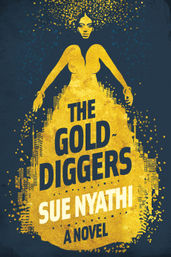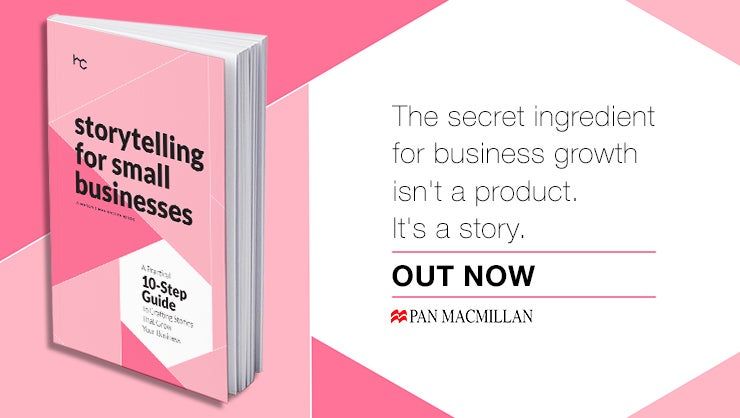Sue Nyathi: What has COVID reduced us to?
"We had no idea the global ramifications it would have. In the end it would not matter whether you lived in Johannesburg or Timbuktu." Sue Nyathi, author of The GoldDiggers reflects on the effects of COVID-19.

Once upon a Wuhan, in a wet food market, an unsuspecting patron ate a bat. It was here that a virus called COVID-19 was borne. We had no idea the global ramifications it would have. In the end it would not matter whether you lived in Johannesburg or Timbuktu.
Open borders, open trade we screamed before COVID-19. We travelled to open our minds, unknowingly exposing ourselves to unseen viruses lurking in the air. Suddenly everyone was screaming close the borders. Flights were suspended mid air. Ports were no longer harboring foreigners. In the process, they fuelled rabid nationalism. America for Americans, South Africa for South Africans. Where would that leave us? The ones who could not go back home but were as an unwelcome as the virus that transcended through borders, permeating through pores.
Keep an eye out for the symptoms they warned us. We armed ourselves with thermometers and hand sanitizer. We horded toilet paper, fought over it and we did not even know why. We washed our hands, dutifully and conscientiously.
It only attacks white people they said. That was up until your black neighbor got it and then you suddenly realized we had no special immunity against it. It only attacks the elderly people they said, until you heard on news of that 20 something year old died from it. Then someone screamed, “oh but they had an underlying condition” Then everyone who was diabetic or HIV positive started shifting uncomfortably in their seats. That was until that healthy middle aged guy who ran the Comrades died from it. Then it dawned on us that we were all vulnerable. That the virus was not a respecter of persons. It did not care whether you were black or white, rich or poor, male or female, queer or straight, young or old. It was coming for us all.
We were all united by a rabid fear or this unforeseen virus we were not even armed to fight. We dutifully watched the bulletins. Our anxiety rising with each new infection and with each new death. #StayAtHome became the buzz word. #Lockdown, a looming threat. The Chinese had locked down Wuhan and appeared to have conquered the virus. Italy had delayed Lockdown measures and it appeared the virus had conquered them, ravaging its citizens. The growing death toll took its toll on us. The calls for a lockdown grew louder. The economy won’t survive it screamed one group. Neither will the people, screamed another. And so the President took a decision to put the country under lock and key.
Lockdown was fun in the beginning. #StayAtHome we tweeted not realizing that some of us did not have homes. Or that some homes were battlegrounds for rampant abuse. #StayAtHome we continued, happily discovering our long-lost love for baking banana bread. #StayAtHome we proclaimed as we shared exercise routines on Insta, lamenting on weight gain while others teetered on the verge of starvation. #StayAtHome we shouted, oblivious to those amongst us who could not stay at home because they needed to go hunting for their next meal. So while it appeared that we were in the same storm, we certainly not in the same boat. Being locked down in a mansion was a different experience from being locked down in a miniscule asbestos shack. How do you even begin to self isolate in a crowded house? #StayAtHome they screamed. Then there were those who could not work from home. Whose livelihoods were now threatened? And suddenly it was not just the lower classes that were vulnerable; we all were, as the glaring reality of being one cheque away from poverty began to crystallize.
#StayAtHome they told us and we did, with our kids. We jumped onto the homeschooling bandwagon. We extolled the virtues of Microsoft Teams versus Google Classroom. We hated role playing, veering between the role of teacher and mom. We complained that lines between home and school were blurred. Then as our patience began to wear thin we began to anxiously wonder when schools would open. Then we were confronted with the glaring reality of them never reopening. The scary thought that online learning would soon be the new normal refused to settle in our heads.
We downloaded Apps like Houseparty and Zoom and we face timed our family and friends. While we missed their company we were comforted by the fact that we were still able to catch a smile and a laugh. That was until we lost our grandfather and had to Zoom into the funeral. No longer could we pay our last respects or hug the bereaved. It was in that moment we realized the absurdity of the situation. What had COVID reduced us to? How could online communication replace physical interaction?
The only time we left the house was to do the groceries. Shopping was no longer a leisurely stroll down the supermarket aisle, sampling products and putting them back in their place. Instead it became a mad rush of picking what you needed and wondering how many other people had pawed it with their COVID infested hands. From behind our masks we eyed each other suspiciously. Don’t get too close our eyes communicate. When we get home we disinfect the groceries, disinfect ourselves and then suffer through every COVID-19 symptom listed on Google.
In the evenings, we sit in front of our televisions and curse our leadership. We curse them for the health system that is falling apart because now we realize our private medical aid policies can no longer shield us. We curse them for not allowing us to smoke through a pandemic because how else do we stay calm during the storm? We castigate them for not allowing us the freedom to buy alcohol so we can numb our unease with red wine. We are afraid to even start planning for next week because we now know that our tomorrows are not assured. We had to cancel that holiday to Greece. We could not even attend church for the Easter service. Instead we celebrated mass online, in our pyjamas and pretended to receive communion. It’s God they said, he is trying to remind us to prioritise him. It’s the devil I reply, only a Machiavellian person would cough up COVID. So we eat ourselves into oblivion, cry ourselves to sleep and we pray for a better tomorrow.
The GoldDiggers
by Sue Nyathi
It’s 2008 and the height of Zimbabwe’s economic demise. A group of passengers is huddled in a Toyota Quantum about to embark on a treacherous expedition to the City of Gold. Amongst them is Gugulethu, who is hoping to be reconciled with her mother; Dumisani, an ambitious young man who believes he will strike it rich, Chamunorwa and Chenai, twins running from their troubled past; and Portia and Nkosi, a mother and son desperate to be reunited with a husband and father they see once a year.
They have paid a high price for the dangerous passage to what they believe is a better life; an escape from the vicious vagaries of their present life in Bulawayo. In their minds, the streets of Johannesburg are paved with gold but they will have to dig deep to get close to any gold, dirtying themselves in the process.
Told with brave honesty and bold description, the stories of the individual immigrants are simultaneously heart-breaking and heart-warming.


